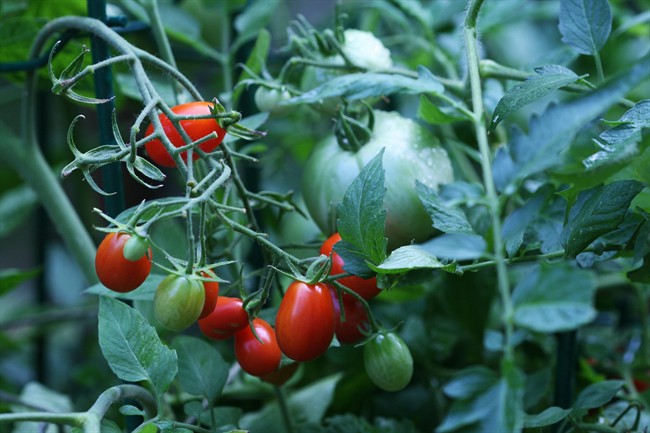Heads up Alberta gardeners: it’s time to pull out the old blankets and sheets because frost is on the way in areas west and northwest of Edmonton.

Environment Canada issued a frost advisory Sunday afternoon for areas around Spruce Grove, Morinville, Mayerthorpe and Evansburg and Edson to the west; Slave Lake, Whitecourt, Fox Creek, Swan Hills Westlock, Barrhead in the northwest; and Athabasca, Wabasca, Peerless Lake, Gift Lake and Cadotte Lake to the north.
The public weather agency said clearing skies in those areas will allow the temperature to drop below the freezing mark.
READ MORE: Snow in parts of Alberta Sunday as Nakiska, Sunshine Village ski resorts share mountain photos
Cloud cover should allow adjacent areas to remain just above the freezing mark by Monday morning. However, the conditions will be closely monitored and the advisory could be expanded later Sunday evening.
Those with gardens are advised to cover their plants, especially in frost-prone areas. Environment Canada issues the advisories in the late summer when communities are expected to experience early season frost that could damage crops and gardens.
To pick or cover? A temperature guide
There are a few garden vegetables that can weather the cold. Here’s a basic list of what needs to be harvested, and what can hold on for a couple more weeks.
Beans and peas – Ripe or not, beans and peas do not do well with frost. If you expect a frost cover overnight – harvest these and enjoy.
Corn – Mature corn will not do well with a frost, and should be harvested immediately. Immature cobs can be left on the stalk with hopes for another week of growth – but a good freeze will shorten their shelf life by three or four days.
Tomatoes and peppers – Ripe tomatoes or peppers should be harvested immediately. If you have un-ripened ones on the vine, and the forecast calls for temperatures right around 0 degrees C, you can take a gamble. Try placing your plants along the south side of your home and covering them with a blanket. If the forecast calls for -2 degrees C or colder, you are better off harvesting the un-ripened goods and letting them ripen inside.
Gourds – Mature gourds with a thick skin should be harvested immediately. Eat your cucumbers right away. Cure your pumpkins, squashes and zucchinis in a cold, dark room on a non-metal or non-concrete surface – this will make them last longer. Immature pumpkins or squashes will not ripen off the vine – so you’ll want to leave them out until their skins are quite hard. Hope for the best by covering them with a blanket on those cold nights, and be careful to not crush the vine.
Apples – Many types of apples can stay on the tree until the end of September (assuming we don’t see a significant late-September snowstorm). A light frost can actually make the fruit more sweet and flavourful.
Root vegetables – Vegetables like beets, carrots, onions and potatoes can stay underground until the soil around them starts to freeze. A light frost would be no problem, but any kind of frost that would freeze the ground around them would damage the goods.
Lettuce and salad greens – A light frost will change the texture of these items, and they should be harvested to avoid freezing. But if we see a few more nice weeks, the base of the plant could still grow. If you’re optimistic – try cutting away the usable greens and holding out to see if you can get another growth before the end of the season.
Kale, cabbage and chard – These hearty vegetables do well under a light frost. Their colours can become more vibrant and their taste more robust. But no garden plant will survive a deep freeze. If you think temperatures will drop significantly below 0°C overnight, your best bet would be to harvest them and bring them inside.





Comments